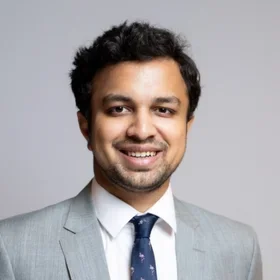Long before he became a trained practitioner of narrative medicine, Dr. Andre F. Lijoi, MD, '19SPS Narrative Medicine CPA, had experienced the curative power of storytelling.
A young physician fresh from his residency in 1983, he went to work for the Public Health Service in the Appalachian region of Kentucky, where he was immediately struck by his patients’ natural capacity for telling stories.
“You couldn’t ask a question without getting a story,” Dr. Lijoi recalled. “After about six months, I realized these stories were helping me to take better care of these people.”
The key, he said, was simply to listen. Indeed, “radical listening” is a core tenet of the practice that internist and literary scholar Dr. Rita Charon would later establish as “narrative medicine,” which uses narrative skills and creative exercises to cultivate greater intersubjective awareness in clinical practice, which leads to the inevitable benefit of more empathetic care. The Division of Narrative Medicine, which Dr. Charon founded at Columbia University, is the first of its kind.
Now a family medicine physician and faculty member at York Hospital in Pennsylvania — and a recent graduate of Columbia’s Online Certification of Professional Achievement in Narrative Medicine — Dr. Lijoi is using narrative practices to help patients and colleagues weather the anxiety and stress of the current COVID-19 pandemic.
Ensuring That Patients Feel ‘Seen’ During The Crisis
One of the practices calls for caregivers to write a narrative account of a patient visit, share it with the patient, and invite them to respond. Apart from ensuring that the patient feels “seen,” the goal, said Dr. Lijoi, is to build a relationship of trust and compassion that can lead to better medical outcomes.
“It’s about listening carefully and watching closely,” he said. “You create a connection such that the patient knows you’re present—and presence is a fundamentally compassionate act.”
Dr. Lijoi began his narrative medicine training at Columbia in 2015, through workshops facilitated by faculty members. The experience inspired him to pilot his own workshops for residents at York Hospital, which involved sharing a piece of creative work — a poem, a song, perhaps a painting — and prompting the participants to write an extemporaneous response.
The creative exercises proved to be profoundly therapeutic for many of the residents: “I finally feel human again,” wrote one participant in the feedback survey. Dr. Lijoi has run monthly workshops for residents, along with drop-in sessions for anyone on staff, ever since.
“I was completely unprepared for the response,” he said. “It reflected to me how much they needed it.”
Dr. Lijoi has continued running these sessions for residents and his organization as a whole each month. Now, he's brought those sessions online to support his community.
I tell my residents, ‘You have tough work—this is tough work and it’s hard to manage it. But if you stick with me, you’re gonna find a lot of beauty.'
— Dr. Andre Lijoi, '19SPS Narrative Medicine Certificate of Professional Achievement
Why Narrative Medicine is Needed Now More Than Ever — For Clinicians and Patients
That need is especially acute for so many medical professionals in the midst of the current crisis. Dr. Lijoi has taken to emailing images of natural beauty, passages of prose, or verses from one of his favorite poets, the late Mary Oliver.
“I tell my residents, ‘You have tough work—this is tough work and it’s hard to manage it. But if you stick with me, you’re gonna find a lot of beauty,’” he said.
For his own part, Dr. Lijoi continues to find comfort in the creative practices of narrative medicine. During a recent virtual workshop offered by the Narrative Medicine program, he responded to a writing prompt (“Write about the day that brought you here”) with the following poem:
Dysynchrony
Text: My son’s fever came back.
Phone Call: I need help with a phone visit.
Portal: My anxiety is really out of control.
Phone Call: We have a video visit ready for you.
Text: Please call me about my chest pain, I think I need a CT.
Resident: Do you have time to rehearse for a public service video we are making?
Portal: My daughter, husband and I have a fever. They told us to go get tested, but I want your opinion first.
Email: Rewrite scripts for rationing vents for coming surge.
Colleague: A woman I baby sat for just drowned and her son too.
Portal I am tired of being abused. Please help me.
Phone call: My anxiety is out of control. What self care helps you? What gives you hope? Good, I want you to try those two things every day. Update me next week.
Reflection: Must trust, equanimity, compassion. I HOPE I helped.
Reflecting on his experience with Columbia, Dr. Lijoi welled with gratitude for the enduring friendships and new perspectives he developed.
“I really can’t tell you how fortunate I consider myself to have been in that program. It’s just made my life richer,” he said. “I’m a better doctor, a better teacher, a better mentor than I was three years ago. And I hope I’m a better human being.”
Learn more about the Online Certification of Professional Achievement in Narrative Medicine program.


